- Home
- Roger Taylor
The Return of the Sword
The Return of the Sword Read online
The Return of the Sword
Roger Taylor
Mushroom eBooks
Copyright © 1999, Roger Taylor
Roger Taylor has asserted his right under the Copyright, Designs and Patents Act 1988, to be identified as the Author of this work.
First published by Headline Book Publishing in 1999.
This Edition published in 2003 by Mushroom eBooks, an imprint of Mushroom Publishing, Bath, BA1 4EB, United Kingdom
www.mushroom-ebooks.com
All rights reserved. No part of this publication may be reproduced in any form or by any means without the prior written permission of the publisher.
ISBN 184319239X
Contents
Chapter 1
Chapter 2
Chapter 3
Chapter 4
Chapter 5
Chapter 6
Chapter 7
Chapter 8
Chapter 9
Chapter 10
Chapter 11
Chapter 12
Chapter 13
Chapter 14
Chapter 15
Chapter 16
Chapter 17
Chapter 18
Chapter 19
Chapter 20
Chapter 21
Chapter 22
Chapter 23
Chapter 24
Chapter 25
Chapter 26
Chapter 27
Chapter 28
Chapter 29
Chapter 30
Chapter 31
Chapter 32
Chapter 33
Chapter 34
Chapter 35
Chapter 36
Chapter 37
Fantasy Books by Roger Taylor
Chapter 1
The water had travelled a long and ancient journey, Andawyr mused as he dipped his hand into the stream and splashed his flushed face; mountain, sea and cloud, over and over, ever changing, ever the same. And though it shaped the land, it ran through his fingers unresisting. He gave a grunt of approval at the coolness it brought, then sat back, closed his eyes, raised his face towards the sun and took a long, slow breath. As it filled his lungs, the mountain air seemed to carry the sunlight through his entire frame. It mingled with the bubbling clatter of the stream and he felt the tension brought on by his too-rapid walking through the hills ease.
‘Simple pleasures,’ he said to the flickering shapes dancing behind his eyelids. ‘Simple pleasures. Being here is enough.’
It was no new thought, but it had as much meaning for Andawyr now as whenever it had first come to him. Not that he could remember when that had been, he reflected. It was as though he had always known the truth of this. But that could not have been so, for such a realization could only be attained after a great struggle. Or could it? Children often had it – that sureness of touch in their lives. Eyes still closed, Andawyr’s nose curled. He compromised. Perhaps the realization – the insight of the child – could only be rediscovered after a great struggle. Yes, that would do. He chuckled softly – he already knew that, too.
‘You’re rambling, you old fool,’ he said into the warm air. He’d not come here to mull over his own long-learned ways of dealing with his life . . .
He opened his eyes and propped himself up on his elbows. ‘Being here is enough,’ he said again, testing the words thoughtfully. They were all that could be said, but necessarily they were only a pale reflection of a truth that was, perhaps, inexpressible.
Many things were thus, but not all were so easily accepted. Or so benign.
Andawyr scowled in self-reproach. What he had come here for was to do nothing, not continue along the ruts his mind had been ploughing relentlessly for . . .
How long?
Too long . . .
He rolled on to his stomach and, resting his head in his hands, stared down into a small sheltered pool at the edge of the stream. An oval, battered face stared up at him unsteadily through the gently wavering water. A blade of grass floated idly around the image, then drifted back out into the main flow. It was followed by a scuttling insect that left brief dimpled footprints in the water as it pursued some urgent errand.
Andawyr’s image looked rueful.
Not the face of a great mage, he thought, tweaking his broken nose, then running a hand through his bushy grey hair, leaving it quite undisturbed. Such a person should have a conspicuous dignity. He should be patriarchal and stern, with a looming presence and a gaze to quell men.
Lips pursed, the image weighed this uncertainly.
Or perhaps he should be beatific, saintly; exuding the inner tranquillity that came from years of devoted study and a deep and profound understanding of the world. The image raised its eyebrows knowingly and, with a self-conscious cough, Andawyr withdrew from the debate.
If only, if only . . .
If only his years of study had brought him that kind of knowledge.
The image broke and scattered as Andawyr prodded it with a knowing finger. He supposed they had, in a way. He had learned what was of real value to him and that indeed gave him an ease of mind and a clearness of vision that many would envy. Nor was he disturbed by the fact that his endless searching for knowledge had brought with it a measure of the vastness of what he did not know; it was, after all, in the nature of things that questions bred questions; children soon learned how to destroy their parents with the simple question, ‘Why?’
It did not even disturb him too much that, at the limits of his understanding of the inner nature of things to which his searching and his conventional logic had led him, there was apparently paradox – and certainly bewilderment. That was simply another challenge to be met and wrestled with joyously.
Or would have been.
But now, a darkness was tingeing his discoveries; a darkness that possibly might not allow him the luxury of a scholar’s leisurely debate; a darkness that could be growing even as he lay here and that might burst forth all too brutally out of the realms of academic consideration and into the world of ordinary men.
He swore softly and sat up. Just beyond the shoulder of the mountain he knew he would be able to see the maw of the great cave that was ostensibly the entrance to the Cadwanen – the Caves that were the home of the Order of the Cadwanol – the Order of which he was the Leader – the Order charged originally by Ethriss with opposing Sumeral and, on His destruction, with seeking the knowledge that would guard the world against His coming again.
For come again He must, Ethriss had known, though of how he had known he never spoke. Suffice it that, although Sumeral took mortal form, He was no mere man. He had come in the wake of Ethriss and the other Guardians from the Great Searing that had been the beginning of all things and, with lesser figures that had emerged with Him, had set out to destroy the world that the Guardians had created. Though His mortal body had eventually been destroyed, after a long and terrible war, there were many places within the warp and weft of the fabric that formed all things where His dark and festering spirit could find sanctuary.
And come again He had, for the Cadwanol had failed in their charge as generations of stillness and peace had taken Sumeral from the minds of men and reduced Him to little more than a myth, a tale to make children tingle. Yet some sixteen years or so ago He had again taken form in this world. Silently, His ancient fortress, Derras Ustramel, had been built again in the bleak, mist-shrouded land of Narsindal and it was as much good fortune as courage that had eventually brought Him down before, it was hoped, His corruption had spread too far out into the world. Nevertheless, much harm had been done and many had died.
No special reproach had been offered to the Cadwanol, for others had failed in their vigilance as well, and all had paid a bitter pri
ce. But a day did not pass without Andawyr thinking of the events of that time and, whenever a problem taxed him to the point of despair, it was these memories that returned to spur him on. For ignorance and the darkness of the mind and heart that it brought were the greatest of Sumeral’s weapons and only knowledge could prevail against it.
But what was Andawyr to do now? At the very heart of his work lay a maelstrom of confusion and illogicality; conclusions which, though reached through modes of thought and observation that were unimpeachably correct, led to consequences that seemingly defied the reality of the world as ordinary men knew it. As he knew it, for pity’s sake, he mused bleakly, throwing a small pebble into the stream and watching the ripples spread and disperse. No one would claim to understand what this strangeness truly meant, but until now it had not really mattered. It was sufficient that it was consistent and that it worked: it could be used to predict the outcome of experiments and went a considerable way towards explaining many once-mysterious things, not least the powers that the Cadwanwr themselves possessed. But what had once been a vague suspicion had grown of late. It could no longer be dismissed as an inadvertent aberration twisting and curling at the distant edges of their calculations. And it could no longer be ignored.
There was, beyond all doubt now, a flaw deep in the heart of the way the world was made. Something that, even within the terms of the strange nature of the Cadwanol’s work, could not be. As an academic exercise it had been speculated upon from time to time for many years, but in the surge of learning that had followed the war it had been confirmed and accepted.
Fortunately, though disconcerting, it should have been of no pressing significance. It was something that would manifest itself in the world very rarely and then only fleetingly and in the smallest ways. But now there were signs that for some reason it was growing, signs that it might manifest itself much more conspicuously, that it might bring great destruction. And, too, there were indications that something else was pending, something rare and ominous, though whether the two happenings were associated could not be determined.
Andawyr growled irritably and threw another stone into the stream. He was ploughing the old ruts again after all. He had come out here to clear his mind, to rid himself of its interminable circling arguments and now he was teetering back to them again. He felt as though he were trapped in an hourglass, scrabbling to escape the sand being drawn inexorably to the centre.
Abruptly he let the thoughts go. He was sufficiently aware of his own way of thinking to know that he had reached a stage where pounding incessantly at the problem would merely drive any solution deeper into hiding. Like a shrewd predator, all he could do now was mentally wander off – do something else – anything else – knowing that eventually the prey would quietly reappear, probably quite unexpectedly. He smiled broadly and looked again at the stream. The sunlight sparkling off it in endlessly varying patterns and its clattering progress down the hillside were indeed an antidote for his preoccupations.
As he watched the stream, his gaze was drawn to a ripple piled up over a large stone. It wobbled from side to side as if trying to shake itself loose, but generally it maintained its shape and position. Tongue protruding, Andawyr tossed a pebble towards it. It missed. He closed one eye, put out his tongue a little further and tried again.
This time the pebble landed squarely in the ripple with a satisfying plop. As he had known it would, nothing happened apart from a few bubbles drifting to the surface and floating away. The ripple would only change if the rock that was causing it was moved, and then another would form elsewhere. Until that happened, the ripple would remain unchanged while changing constantly; indeed, it could not exist without that change – who could shape still water thus? From his sunny vantage, Andawyr could see many such ripples in the stream. And other parts, which, though fed by smooth, untroubled waters, were turbulent and disordered, never settling into any single pattern.
This stream’s cleverer than I am, he thought. Without a moment’s thought it knows how to form strange and complex shapes that I couldn’t predict if I did calculations for a year. The idea amused him. It was the kind of example he delighted in slapping his students’ faces with when they became either too involved in something or too sure of themselves.
Forget it, he reminded himself, putting his hands behind his head and lying back on the soft turf. Get on with your wandering.
And wander he did. But though he assiduously avoided the concerns that had sent him out of the Cadwanen for relief, the thoughts that came to him were scarcely lighter as he found himself pondering the Second Coming of Sumeral and all the changes that had happened since His defeat.
The Orthlundyn, for example, were now like a people awakened from a long sleep. They travelled far and wide and had a seemingly insatiable thirst for knowledge. They had become very much the guiding spirit of the Congress that followed the war. The Fyordyn, by contrast, were less steady, less confident than they had been; cruelly hurt by the civil war that had followed Oklar’s murder of their king and his near-success in seizing power for his Master. A lesser people might well have descended into a spiral of disintegration, but many things sustained them through their trials, not least their finally having come together to face Sumeral’s terrible army in Narsindal. And, too, their almost universal affection for their queen, Sylvriss, and her son Rgoric, named after his ill-fated father. Less emotively, the Geadrol, the Queen’s Council of Lords, the actual government of Fyorlund, also played no small part, with the stern, truth-searching discipline of its deliberations. The Riddinvolk, with their fanatical love of horses and riding, seemed to be the least changed, but even they felt the guilt of their failure to note the return of Sumeral.
And what about the Cadwanol? Andawyr thought as the old memories rehearsed themselves again. Where do we stand in this great analysis?
Like all the others, wiser by far, he supposed. Wiser in their understanding of themselves, and certainly much wiser in the ways of the Power. First there had been the shock of accepting what had happened, and the ordeal of their frantic and futile search for Ethriss. Then, while his fellow Cadwanwr had stood on the battlefield, using their skills to protect the army against the Power used by Sumeral’s lieutenants, His Uhriel, Andawyr himself had accompanied Hawklan and his companions to the very edge of Lake Kedrieth in the middle of which Derras Ustramel had arisen again. Despite the sunlight, Andawyr shivered at the memory of Sumeral’s presence in that place. For him, it had hung in the air as tangibly as the mist that shrouded that awful lake.
Such experiences brought insights in a way that nothing else could and subsequently, in quieter times, many old, intractable problems had been solved with an almost embarrassing ease.
The memory of Hawklan brought the healer’s words back to Andawyr. ‘There is no healing for this, any more than there is truly for any hurt. Time will blur and cloud the memory of the pain, but your lives cannot be as they were. Make of it a learning and you will become whole, and worthy teachers of your children. Cherish it as a grievance and you will twist and turn through your lives seeing only your own needs, and burdening all around you.’ Wise words, timely uttered. Words that had proved to be a healing salve for many.
‘Always the healer, Hawklan,’ Andawyr said quietly. ‘Always the healer.’
Hawklan’s touch perhaps more than any other single thing had ensured that killing hands were stayed after the battle. Without doubt it had ensured that the three allied nations determined to learn what they could about the dank land of Narsindal and its wild inhabitants, the Mandrocs, rather than simply crushing them in a war of mindless vengeance.
Andawyr propped himself on his elbows again. It was a long time since he had thought of Hawklan. He clicked his tongue. Everywhere he looked, paradoxes. In his studies, in the little rock-formed ripple where water flowed upwards, even in what he was doing now – ignoring his questions in order to answer them. And now, Hawklan. Healer, warrior, ancient prince – what was he? How had he
come to this place, this time? Andawyr let the questions go. They might well be intriguing, but they were neither new nor answerable. What Hawklan knew of himself he had shared freely, and that had raised more questions than answers. Besides, attempting to analyse a friend thus was somehow distasteful. It had to be sufficient that he had been there. More than sufficient. For what would have happened without him? He had been pivotal. He it was who had appeared out of the mountains years before and opened Anderras Darion, Ethriss’s great fortress in Orthlund. And it was the opened Anderras Darion that had disturbed Oklar into the precipitate and reckless actions that had led ultimately to the exposure and downfall of his Master. Hawklan’s quiet words had affected so many decisions. And, in the end, it was Hawklan that Sumeral had sought, not to destroy but to turn to His cause.
Pivotal.
The word lodged in Andawyr’s mind.
Why would he perceive Hawklan in this way? It was not something that Hawklan would have claimed for himself. He was always a reluctant leader. And, logically, Andawyr knew well enough that any one of the countless actions and decisions made by countless people at that time would have brought about a different outcome. It was rarely possible to trace a single line of cause and effect to any one happening, and least of all in the chaos of armed conflict, where chance ran amok. As someone had once said to him, ‘Ifs were strewn everywhere.’
Andawyr’s face became unexpectedly resolute. Ifs notwithstanding, Hawklan loomed large in all considerations of those events.
Pivotal.
Andawyr recognized that something in his wiser self was prompting him. The word ‘paradox’ had come too glibly; it had misled him. The water over the rock was no paradox, he knew. It was simply the outcome of forces within and without the water which, at least in principle, were calculable. His relinquishing of fretful questions in order to reach an answer was a little more mysterious but was at least based on his own tested and quite consistent past observations. And Hawklan? Healer and warrior. No real paradox there – no inherent contradictions. It was the duty of those who had the ability to stand between the less fortunate and harm, be it with poultice or sword. Hawklan was simply skilled at both, and skilled far beyond the average. He was . . .

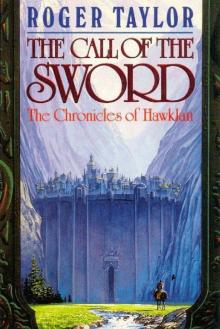 The call of the sword tcoh-1
The call of the sword tcoh-1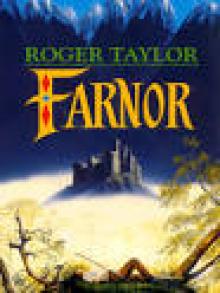 Farnor
Farnor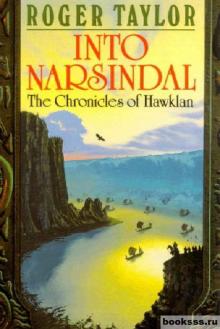 Into Narsindal
Into Narsindal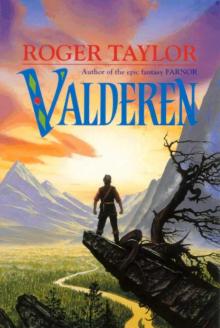 Valderen ft-2
Valderen ft-2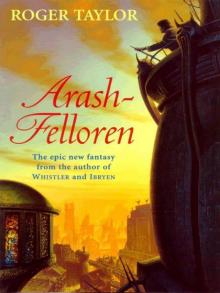 Arash-Felloren
Arash-Felloren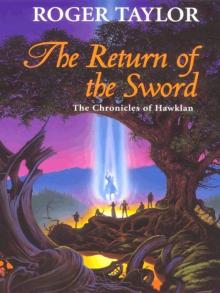 The Return of the Sword tcoh-5
The Return of the Sword tcoh-5![Ibryen [A sequel to the Chronicles of Hawklan] Read online](http://i1.bookreadfree.com/i1/03/26/ibryen_a_sequel_to_the_chronicles_of_hawklan_preview.jpg) Ibryen [A sequel to the Chronicles of Hawklan]
Ibryen [A sequel to the Chronicles of Hawklan]![The Call of the Sword [Book One of The Chronicles of Hawklan] Read online](http://i1.bookreadfree.com/i/03/24/the_call_of_the_sword_book_one_of_the_chronicles_of_hawklan_preview.jpg) The Call of the Sword [Book One of The Chronicles of Hawklan]
The Call of the Sword [Book One of The Chronicles of Hawklan]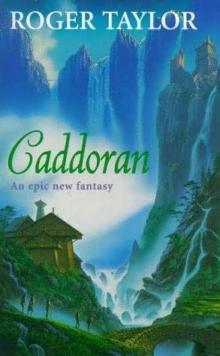 Caddoran
Caddoran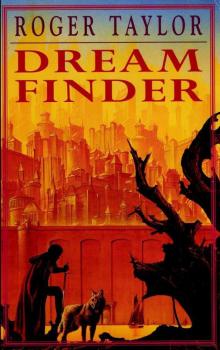 Dream Finder
Dream Finder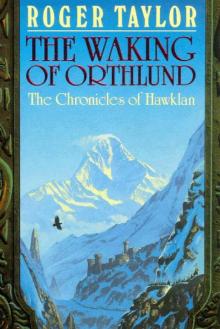 The Waking of Orthlund
The Waking of Orthlund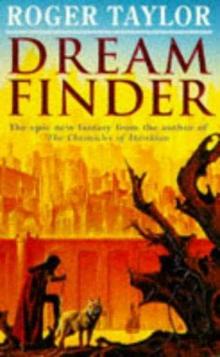 Dream Finder cohs-1
Dream Finder cohs-1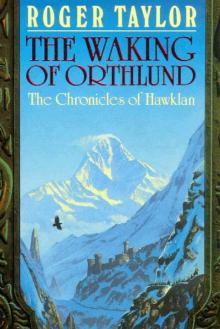 The waking of Orthlund tcoh-3
The waking of Orthlund tcoh-3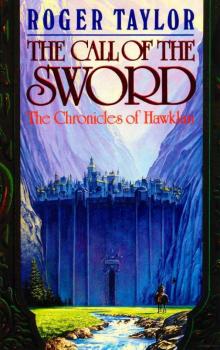 The Call of the Sword
The Call of the Sword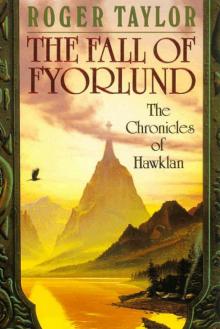 The fall of Fyorlund tcoh-2
The fall of Fyorlund tcoh-2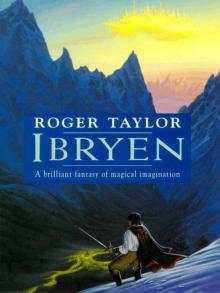 Ibryen
Ibryen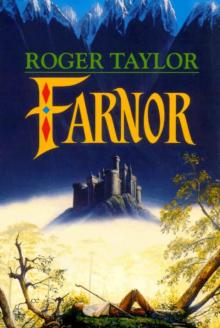 Farnor ft-1
Farnor ft-1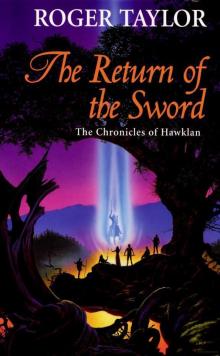 The Return of the Sword
The Return of the Sword![Into Narsindal [Book Four of The Chronicles of Hawklan] Read online](http://i1.bookreadfree.com/i2/04/06/into_narsindal_book_four_of_the_chronicles_of_hawklan_preview.jpg) Into Narsindal [Book Four of The Chronicles of Hawklan]
Into Narsindal [Book Four of The Chronicles of Hawklan]![Valderen [The Second Part of Farnor's Tale] Read online](http://i1.bookreadfree.com/i2/04/05/valderen_the_second_part_of_farnors_tale_preview.jpg) Valderen [The Second Part of Farnor's Tale]
Valderen [The Second Part of Farnor's Tale]![The Fall of Fyorlund [Book Two of The Chronicles of Hawklan] Read online](http://i1.bookreadfree.com/i2/04/08/the_fall_of_fyorlund_book_two_of_the_chronicles_of_hawklan_preview.jpg) The Fall of Fyorlund [Book Two of The Chronicles of Hawklan]
The Fall of Fyorlund [Book Two of The Chronicles of Hawklan]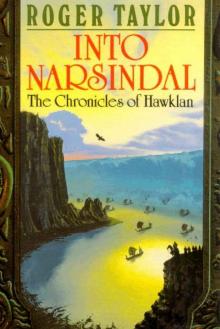 Into Narsindal tcoh-4
Into Narsindal tcoh-4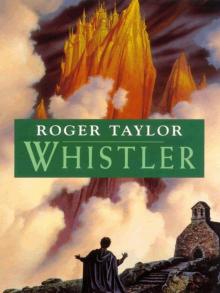 Whistler
Whistler![Whistler [A sequel to The Chronicles of Hawklan] Read online](http://i1.bookreadfree.com/i2/04/12/whistler_a_sequel_to_the_chronicles_of_hawklan_preview.jpg) Whistler [A sequel to The Chronicles of Hawklan]
Whistler [A sequel to The Chronicles of Hawklan]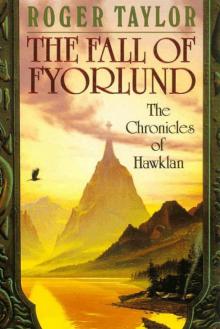 The Fall of Fyorlund
The Fall of Fyorlund![The Waking of Orthlund [Book Three of The Chronicles of Hawklan] Read online](http://i1.bookreadfree.com/i2/04/11/the_waking_of_orthlund_book_three_of_the_chronicles_of_hawklan_preview.jpg) The Waking of Orthlund [Book Three of The Chronicles of Hawklan]
The Waking of Orthlund [Book Three of The Chronicles of Hawklan]